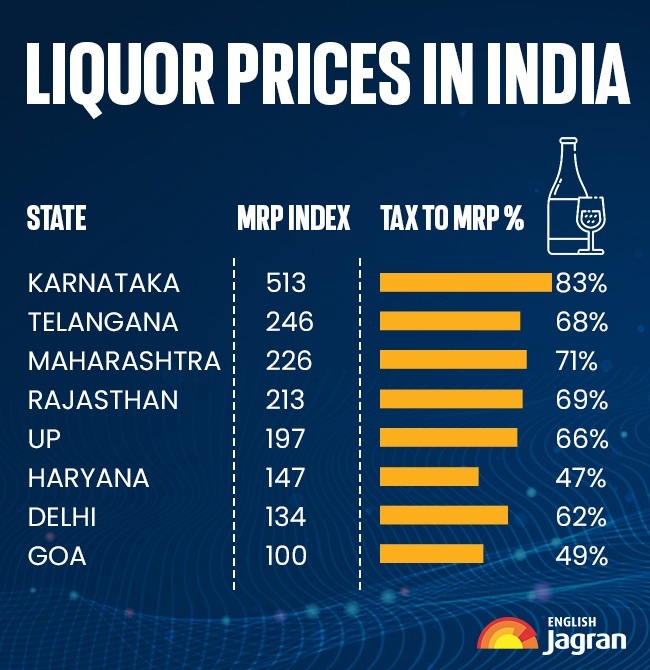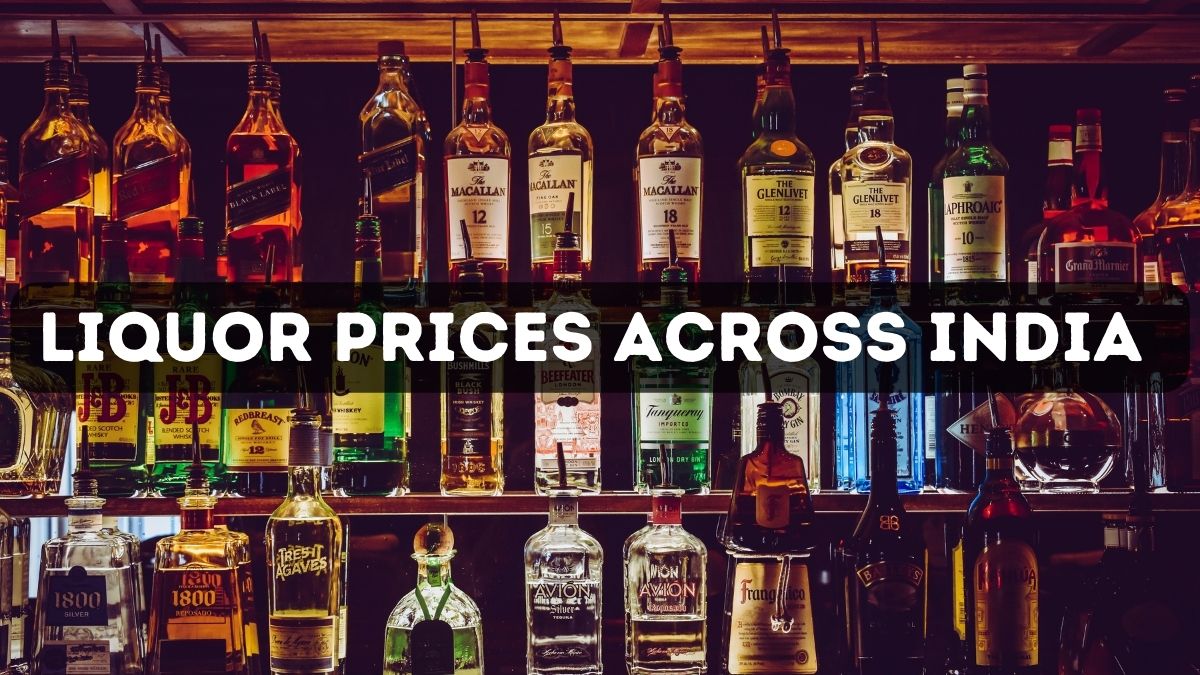- By Ashita Singh
- Tue, 26 Sep 2023 05:10 PM (IST)
- Source:JND
Goa is often considered synonymous with beaches and oceans but also cheap liquors all thanks to the lower levies. However, its neighbouring state Karnataka is just the opposite as it has the highest levy among all the large liquor markets in India. According to an analysis done by the International Spirits and Wine Association of India, Karnataka tops the list of states with the highest price of alcohol while Goa is at the bottom.
As per the analysis, Karnataka levies an 83 per cent tax on the maximum retail price (MRP) of liquor and Goa only levies a 49 per cent tax on the MRP on liquor.
Karnataka is followed by Maharashtra in the list, as it levies 71 per cent tax, Telangana comes in the chart with 68 per cent tax, and Rajasthan taxes 69 per cent of the liquor MRP. It means a whisky, rum, vodka or gin bottle that costs Rs 100 in Goa can cost Rs 513 in Karnataka and will cost about Rs 134 in Delhi, and Rs 246 in Telangana.
Liquor Prices In Different States Of India:

Considering the difference in local taxes, there can be a significant difference in the price of a bottle of popular Scotch brands in Delhi and Mumbai. For example, if a bottle of Black Label costs around Rs 3,100 in Delhi sells for around Rs 4,000 in Mumbai. Notably, this vast difference in prices of alcohol can also be imposed due to smuggling of alcohol across state borders.
Currently, Alcohol and petroleum products fall outside the GST system, leading to various taxes and rates across different states. State finance ministers, with limited control over taxation, often rely heavily on these items, along with property tax, when their revenue is affected. This results in higher levies on alcohol, and increased VAT on petrol and diesel. States that provide subsidies may also raise taxes on these products, as they primarily receive a share of GST revenue from the central government.
While there's ongoing discussion about including petrol and diesel under GST, alcohol remains exempt. This situation leads to a cascading tax effect for consumers, unlike GST, which offers input tax credit. As the state excise cycle is set to begin next month, the industry closely monitors these developments.
